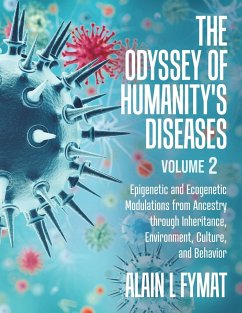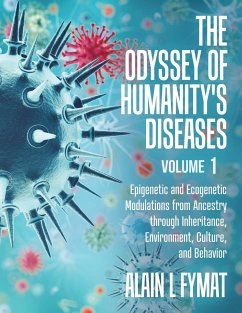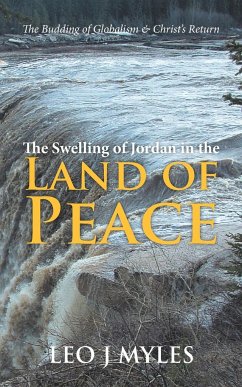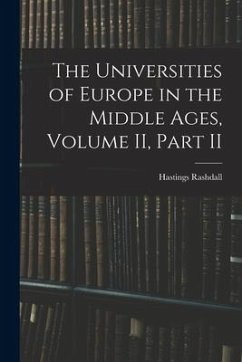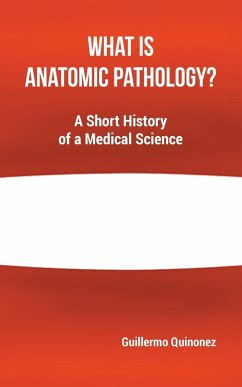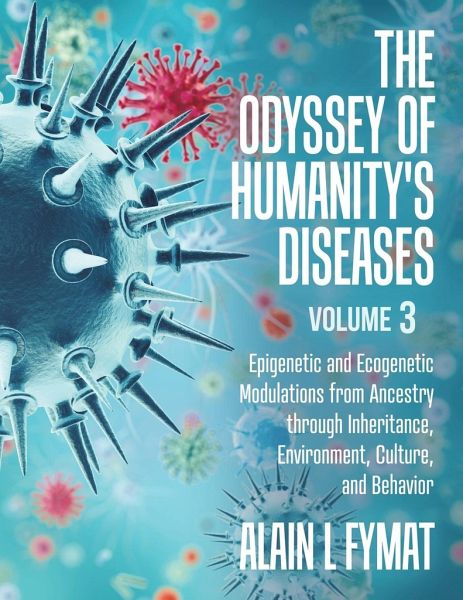
The Odyssey of Humanity's Diseases Volume 3
Epigenetic and Ecogenetic Modulations from Ancestry through Inheritance, Environment, Culture, and Behavior

PAYBACK Punkte
54 °P sammeln!
The history of human medicine traces the approaches followed by different societies regarding diseases from ancient times to the present. By contrast, perhaps for the first time, this book traces the odyssey of humanity's diseases viewed differently through the lenses of epigenetic and ecogenetic modulations across ancestry, inheritance, ethnicity, environment, culture, and behavior. Many of the diseases considered result from gene-environment interactions and, in some instances, even gene-gene-environment interactions. Not being driven and predetermined by our inherited genetic code, we have ...
The history of human medicine traces the approaches followed by different societies regarding diseases from ancient times to the present. By contrast, perhaps for the first time, this book traces the odyssey of humanity's diseases viewed differently through the lenses of epigenetic and ecogenetic modulations across ancestry, inheritance, ethnicity, environment, culture, and behavior. Many of the diseases considered result from gene-environment interactions and, in some instances, even gene-gene-environment interactions. Not being driven and predetermined by our inherited genetic code, we have a tremendous amount of control over how our genetic traits are expressed and, therefore, on our health and lifespan. Our genes do not control our lives and we are not victims of our heredity! How much control do we have over our lives and health has puzzled many since the beginning of time. The emerging science of epigenetics/ecogenetics offers us some answers that put a large degree of control within our reach. Owing to its scope, this book has been divided into three volumes that should interest the educated lay reader interested in this different perspective on humanity's diseases, but also to students and healthcare professionals. From such a perspective, a more illuminating and engaging view of medicine and the health sciences could be obtained. This Volume 3, the final in the trilogy, brings us to the modern era where exciting new developments are happening in nanomedicine, personalized/precision medicine, cancer, cardiovascular diseases, infectious diseases including HIV/AIDs, human gene therapy, stem cell therapy, and others. It behooves us to keep abreast of these new medical and biotechnological developments.



